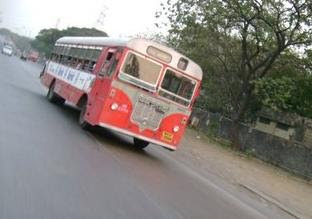I recently read number9dream by David Mitchell, which introduced me to the word ‘imho’. But you, dear reader, since you peruse blogs’n’all, probably know already that ‘imho’ is leetspeak for ‘In My Humble Opinion’.
The acronym was probably novel around the time the book was written (2001), but today, a google search for imho throws up 30,100,000 hits. It has been around long enough to even spawn a variant: Imnsho (In My Not So Humble Opinion). But in the world according to Sroyon, a phrase only becomes cool when it has fallen hopelessly out of fashion. Dig that?
So in this post, I shall express three humble opinions. Each will give me a chance to use the magic word.
Imho, the scriptwriters of Friends may have come up with many good things, but Stevie the TV is one of their best inventions. When I have my own flat, I shall name the furniture. Abel the table, Claire the chair, Fred the bed, Hubbard the cupboard, Merton the curtain, Midge the fridge.
Imho, the Juno soundtrack is one of the best ever. Kimya Dawson is awesome, and anyone who hasn’t heard me singing, whistling or listening to Piazza, New York Catcher has probably not met me in the last two weeks. What a song! *goes into raptures*
Imho, girls look prettier in ice-cream parlours.
In other news, a leading psychiatrist has claimed that internet addiction should be recognised as a clinical disorder. What’s more, I appear to have all the symptoms. Fortunately, there’s plenty of help available online.
The acronym was probably novel around the time the book was written (2001), but today, a google search for imho throws up 30,100,000 hits. It has been around long enough to even spawn a variant: Imnsho (In My Not So Humble Opinion). But in the world according to Sroyon, a phrase only becomes cool when it has fallen hopelessly out of fashion. Dig that?
So in this post, I shall express three humble opinions. Each will give me a chance to use the magic word.
Imho, the scriptwriters of Friends may have come up with many good things, but Stevie the TV is one of their best inventions. When I have my own flat, I shall name the furniture. Abel the table, Claire the chair, Fred the bed, Hubbard the cupboard, Merton the curtain, Midge the fridge.
Imho, the Juno soundtrack is one of the best ever. Kimya Dawson is awesome, and anyone who hasn’t heard me singing, whistling or listening to Piazza, New York Catcher has probably not met me in the last two weeks. What a song! *goes into raptures*
Imho, girls look prettier in ice-cream parlours.
In other news, a leading psychiatrist has claimed that internet addiction should be recognised as a clinical disorder. What’s more, I appear to have all the symptoms. Fortunately, there’s plenty of help available online.





